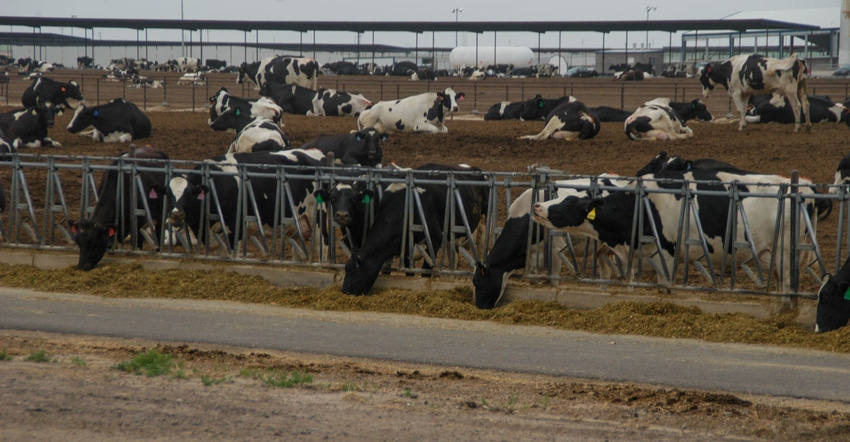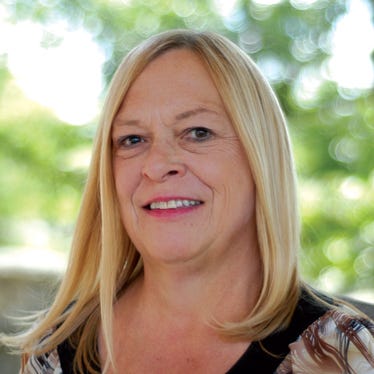
It’s no secret that the coronavirus pandemic has made difficult times in the farm economy considerably worse. However, in the midst of stories of the struggle there are still “good news” stories of people helping people.
One of those comes from Midwest Dairy, the promotion and marketing organization that works with some 6,500 dairy farmers in 10 states in the central U.S.
Midwest Dairy, at the request of its members, asked for a waiver from USDA to allow it to spend checkoff dollars to help food banks buy more dairy products to distribute to families in need of milk, butter, cheese, yogurt and other dairy products. That waiver was granted, and Midwest Dairy has donated $500,000 to food banks to help them get those foods to people in need.
Molly Pelzer, CEO of Midwest Dairy, says the contributions will be spread across the 10 states it represents, including Minnesota, North Dakota, South Dakota, Nebraska, Iowa, Illinois, Missouri, Kansas, Arkansas and Oklahoma.
“We have seen an enormous increase in need as people have lost their jobs in this pandemic a well as children who normally get milk with the meals at school and are now home,” Pelzer says.
The donations are just the latest in a series of efforts Midwest Dairy has undertaken to help make sure that dairy products make it to the places where they are needed, including asking stores to lift purchasing limits.
“Before the pandemic forced restaurants to go to delivery or carryout, about 60% of American’s food dollars were sent on eating outside the home,” she says. “More people eating at home led to an increased demand at retail outlets and required supply chains to be rerouted.”
Pelzer says the early concern about supplies caused many grocers across the country to limit the amount of milk and other dairy products consumers could buy, leading to an oversupply that led to some farmers forced to dispose of milk.
“It was heartbreaking to see that waste at the same time that hungry families were unable to buy the dairy foods they wanted,” she says. “We worked with our national partners in food distribution and state grocers’ associations to assure them that supplies were plentiful and would remain plentiful, and to get those signs [saying] ‘limited purchases’ taken down so people could buy as much milk, butter, cheeses and yogurt as they want.”
She says consumers who want to stock up a bit to reduce the number of trips to the store they need to make should be made aware that the “expiration date” stamped on milk jugs is a “sell-by” date, and that properly stored product will actually last up to two weeks past that date. Milk can also be frozen for future use and moved to the refrigerator to thaw when needed.
“Many people also keep powdered milk in their pantry and use it for cooking,” she says. “I have it in my pantry and it works great for pancakes, waffles, bread-baking and more. There is even powdered buttermilk that can come in handy for those who like to make biscuits.”
Three dairy initiatives
She says Midwest Dairy has undertaken three important initiatives to help people in need get access to the dairy products they want and need.
The first initiative was a partnership with NutriStudents K-12, an organization that helps school nutrition workers plan a variety of menus that meet USDA nutrition guidelines.
“Many of our smaller and mid-sized districts needed that support,” Pelzer says. “There are 8,000 schools that have accessed those menus. As another part of our collaboration with school nutrition professionals, we have been able to provide cooling equipment to keep the dairy products cold in those grab and go meals that are being offered in many areas. That has been a very welcome resource.”
Another partnership is underway with GENYOUth, a national nonprofit dedicated to creating healthier school communities, including the establishment of the COVID-19 Emergency School Nutrition Fund that helps schools obtain equipment to help students get healthy food, learn entrepreneurial skills and more. Through that program, schools can apply for grants of up to $3,000 to support the work they are doing to see children have access to good nutrition while schools are closed.
A third project, informed by dairy farmers, is providing commercial grade refrigerators to rural area food pantries to help them keep dairy products cold.
“A lot of those food pantries are inside churches and community centers,” Pelzer says. “So far, we have placed 70 units in pantries and 50 of those are in locations that were identified by our farmers as locations in need. Our dairy farmers are so happy to be able to help their communities in these difficult times.”
Pelzer says a final project is the production of videos to provide virtual dairy farm tour videos for use by parents, teachers and students learning at home.
“This is a time of year when there are typically a lot of school field trips that aren’t happening this year. But our virtual tours allow students to meet our dairy farmers, see what they do and how they do it and learn about the nutritional benefits of dairy products to build strong bones and teeth,” she says. “Those have been very popular. We have a whole variety of learning tools available on the website at midwestdairy.com.”
Read more about:
DonationsAbout the Author(s)
You May Also Like






